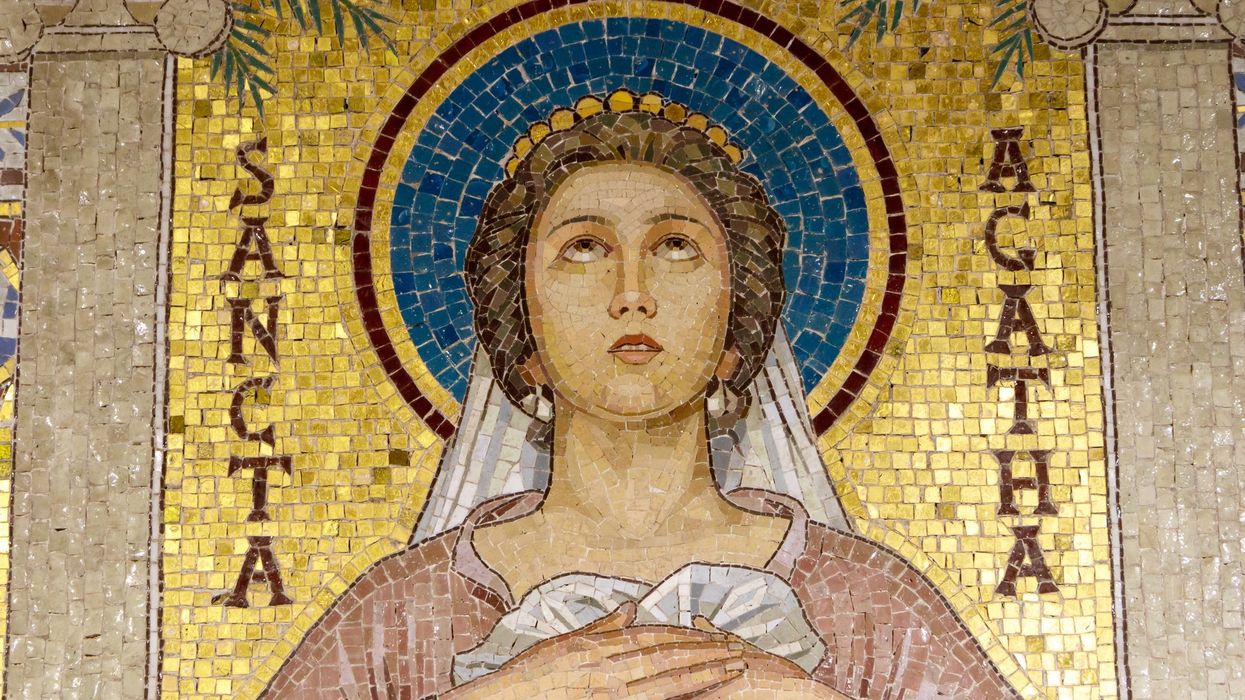
Richard McGuirk/iStock/Getty Images Plus

Christianity, at its core, is not about affirming the self. It’s about dying to it.
Every so often, an academic wrapped in the robes of theory decides to rewrite history — not to correct it, but to commandeer it.
The latest example comes from the Conversation, in which a University of Iowa scholar, Sarah Barringer, claims that Christianity has a “transgender” heritage. You heard that right: Saints who renounced the world to live in chastity and devotion are now being posthumously enlisted in a modern identity crusade they never chose.
The modern obsession with identity — splintering the self into ever-narrower categories — is antithetical to the Christian ethos.
Let's acknowledge the truth up front: There is no such thing as a “transgender saint.” There are saints who disguised themselves, fled arranged marriages, and shaved their heads and donned robes to live among men in monasteries because that was the only place they could escape danger, obligation, or temptation.
But calling this “transness” is like calling Joan of Arc gender-fluid because she wore armor. It’s historical trespassing and spiritual identity theft dressed up as scholarship.
Consider St. Eugenia, St. Euphrosyne, and St. Marinos.
They weren’t confused teenagers raised on TikTok and identity slogans but were devout individuals who, in a brutal and hierarchical world, did what they had to do to escape danger, avoid forced marriage, or pursue a life of monastic devotion. Dressing as a man wasn’t some statement about “true gender” or an inner identity waiting to be expressed. Rather, it was strategy and self-preservation.
More than anything, they chose the path of intense spiritual focus in a world that gave women few choices.
They weren’t rewriting Genesis or making statements about biology. They were rejecting the noise of their time — power, status, family expectations — to live lives of sacrifice and submission to God.
These saints didn’t “identify” as anything — but only with Christ.
To retrofit their stories into modern trans narratives isn’t just ahistorical — it’s grotesque. It’s a desecration of the very virtues they lived for: humility, chastity, obedience, and detachment from self. They weren’t looking inward to define themselves. They were looking upward to lose themselves.
That is the difference. That is what today’s leftist ideologues can’t comprehend, and it's why they have no right to co-opt these lives for their own agendas.
The argument hinges on a dishonest conflation. Barringer admits these stories were “morality tales,” symbolic journeys about rejecting the world and embracing God. Yet somehow rejecting arranged marriage becomes an early form of identity politics and running from Roman militarism becomes evidence of internalized gender non-conformity.
It’s the theological equivalent of reading "The Iliad" and diagnosing Achilles with toxic masculinity.
The saints in question lived in monastic communities that demanded celibacy and asceticism. They weren’t changing genders; they were erasing self — not affirming identity, but crucifying it. Their bodies were temples, not canvases for self-expression.
To call this "transgender" is to confuse spiritual transformation with a social rebrand. One seeks union with God, but the other seeks alignment with self.
Therein lies the real tension. Christianity, at its core, is not about affirming the self. It’s about dying to it.
“I no longer live, but Christ lives in me,” the apostle Paul wrote (Galatians 2:20) — not “I live my truth.”
But the modern obsession with identity — splintering the self into ever-narrower categories — is antithetical to the Christian ethos. You are not your urges. You are not your emotions. You are a soul, and you are called to holiness like Jesus Christ.
The irony is laughable. The same scholars who sneer at scripture’s authority now claim ownership of its saints. They reject Christianity as bigoted and outdated, yet raid its tombs for ideological mascots. It's not a demonstration of reverence for Christianity's ancient saints, but an attempt to rewrite the past to control the present.
We can't pretend this is harmless. Redefining religious tradition to fit modern ideologies amounts to spiritual counterfeiting. It muddies doctrine, breeds confusion among believers, and turns the sacred into just another stage for performance politics.
If you want to find affirmation for trans identity, look to modern movements. Don’t twist the lives of ancient saints who had no concept of gender theory and would likely be horrified by what’s being done in their names.
Christianity welcomes the broken, the wounded, the uncertain — but not by sanctifying confusion.
So no, Christianity does not have a transgender heritage. It has a long and rich tradition of souls rejecting worldly labels to pursue something higher than themselves. That’s not a forerunner to modern identity politics. It’s the antidote to it.
Let the saints rest. Let the church speak. And let the past remain sacred.
John Mac Ghlionn
Contributor